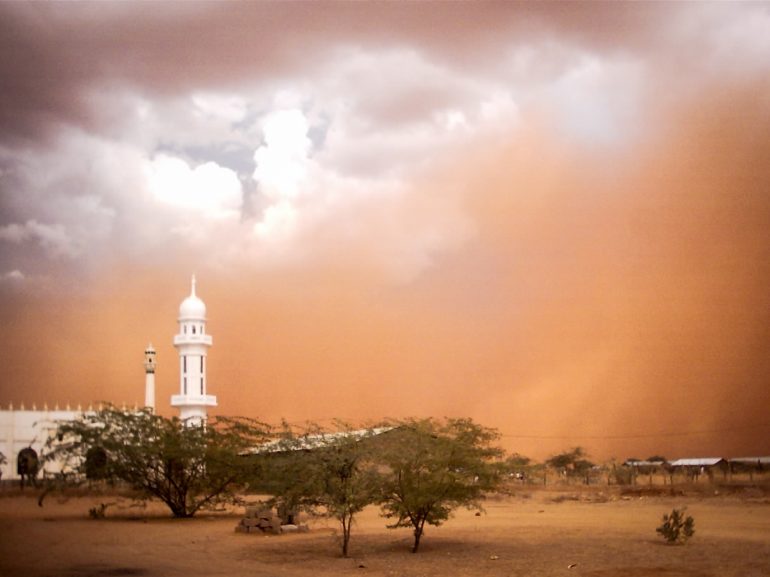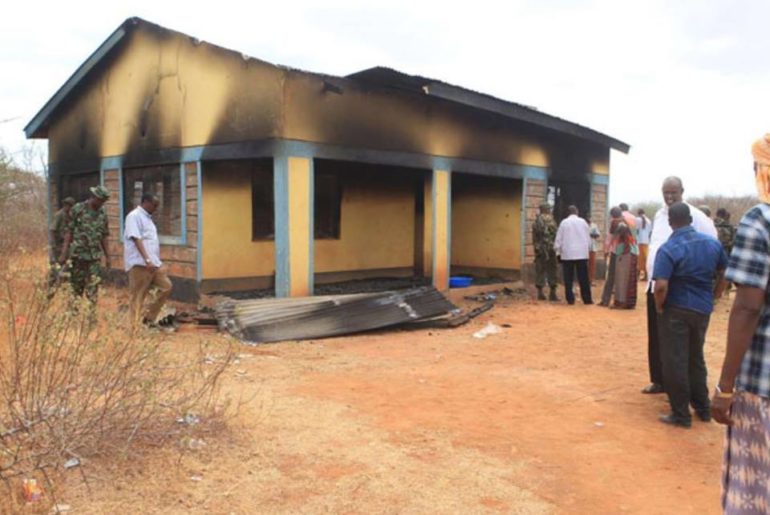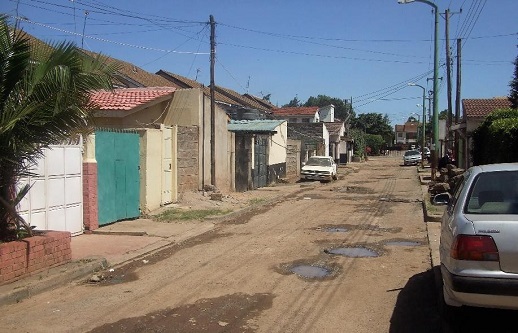Source: www.worldwatchmonitor.org
Date: March 18, 2020

Recent killings of non-local teachers in north-eastern Kenya by suspected al-Shabaab militants have triggered a further mass exodus from the predominantly Muslim region, after at least one previous exodus in March 2018.
According to Kenya Ministry of Education figures, 32 teachers have been killed in militants’ attacks in the region over the past five years. One of the most shocking incidents was in 2014, when 22 teachers returning home for Christmas were among 28 killed in a bus attack in Mandera.
(And five years ago, on the eve of Good Friday, 143 students were killed at Garissa University, singled out by Al-Shabaab for their Christian faith. Four more died after armed forces arrived, making it the deadliest terrorist incident in Kenya since the Nairobi US Embassy bombings of 1998).
It’s not immediately clear how many schools in the region have now either closed down or struggle to stay open after thousands of teachers fled, fearing more attacks by the militant group, the al Qaeda affiliate in East Africa. Now the issue of education in the region has become one of national concern, amidst disagreements in Parliament.
In January, out of almost 4,000 primary and secondary school teachers, at least 2,340 had demanded transfers from the region. At least 836 have moved from Garissa, 287 from Wajir and 964 from Mandera, leaving only about 600 non-local teachers on duty in the region.
This latest exodus was triggered on January 13 after al-Shabaab attacked Kamuthe Resource Centre in Fafi Sub County in Garissa County, killing three male teachers and abducting one.
The dead were Christians Caleb Mutangia Mutua, aged 28, Titus Sasieka Mushindi, 29 and Samuel Mutua, also 29. Another teacher, Joshua Mutua, 30, suffered gunshot injuries on his lower left leg.
Then on 19 February, al-Shabaab militants shot at a bus in the town of Banisa, Mandera County. They are reported to have killed two Christians, Peter Kilnozo Musili and Kevin Onyango, apparently for not reciting the ‘shehada’ (Islamic prayer) and also a Muslim, Abdi Abinoor, for trying to protect the Christians.
On 23 February, local news agency K24 reported that al Shabaab had released an audio clip online, in which the group‘s spokesman urged locals to evict all non-Muslims living and working in Garissa, Wajir, and Mandera – if they do not leave of their own free will. He said “Muslim teachers, doctors, engineers, and young graduates from the north-eastern province are unemployed. Isn’t it better to give them a chance? There is no need for the presence of disbelievers.”
North-eastern Kenya is a largely marginalised region (carved out of the present-day southern Somalia during the colonial period); it shares a long porous border with now largely lawless Somalia (although the autonomous region of Somaliland is much more stable). It is the homeland of ethnic Somalis, a pastoralist community that migrates from one place to another with their cattle, sheep, goat and camels.
The local people’s lifestyle has often taken a toll on their education, with the result that the region has to rely on Kenyan non-local teachers – mainly Christians – to meet its need for teaching staff. Local estimates are that between 60 to 80 percent of the teachers in the region are non-locals.
Now with every attack, fear has mounted. Many teachers had moved to the region to build their careers, but their exit now means almost no learning in the three north eastern counties of Mandera, Wajir and Garissa.
“When the non-local teachers left this year, some schools closed for two weeks and re-opened, but those in the rural areas are still shut,” said Pastor Josiah Joab, leader of Jubilee Christian Church in Garissa town, in an interview for World Watch Monitor. “There are almost no non-local teachers left in the region. It is because of the frustrations they have undergone.”

History of attacks by al-Shabaab militants
Between 2018 and 2020, sporadic attacks on non-local teachers by some locals have caused instability in their stay there, Kenya’s government teachers’ employer, the Teachers Service Commission (TSC), acknowledged.
In October 2018, two Christian teachers were killed when al-Shabaab militants attacked Arabia Boys Secondary School in Mandera County.
Philip Okumu, 26 and Daniel Wekesa, 39, were shot as they tried to escape a fire that ignited after militants threw an Improvised Explosive Device into a house in which they were staying.
Months earlier, an attack in Qarsa Primary School in Wajir County left three teachers dead. Seth Olouch Odada, his fiancée Caroline and Kevin Shari were murdered in cold blood in an early morning attack in their school.
The 2018 attack in Wajir resulted in the temporary closure of 250 out of 266 primary and secondary schools in Wajir county.
Now the TSC has again defended its recent decision to allow teachers to move out of north eastern Kenya, saying it did not want its employees to return home in coffins. (In 2018, several teachers had camped at TSC headquarters in Nairobi to demand transfer from the region).
The current teacher crisis is a serious one, according to Fr. Nicholas Mutua, a Roman Catholic priest in the Garissa diocese.
“The children are really suffering since they are in school, but there is no –one to teach them. This is likely to worsen in the coming days. I think a solution needs to be found soon,” Mutua told World Watch Monitor.
According to Mutua, people who have no training as teachers are stepping in to keep the schools running: local area administrators, some military officers, parents as well as some retired teachers.
“You can imagine the quality of education the children are receiving. The new tutors cannot give the same quality as the trained teachers,” said Mutua.
Apart from the risk from extremist Islamist militias, some Christian teachers narrate how they are harassed and beaten by students, and sometimes referred to in derogatory terms such as Kafirs (‘pagan’) or Nguraro (‘hard’-haired.) Some women are also forced to wear the hijab, contrary to their religion.
Many of these teachers reluctantly agreed to work in northern Kenya after being unemployed for years.
“I took up a teaching job in northern Kenya because there were little prospects that I would get employed in my own area. It’s the only way I could put a meal on the table,” said a 39 year old Christian teacher, originally from Kisii County in western Kenya.
Since he has a child to care for, he has no plan to move out of Garissa town anytime soon; he has worked in his current private school for four years. “There are challenges here. The climate is harsh and the local people are not always friendly, but this is what I have for now.”
Another teacher in the Garissa area, mother of one, told WWM: “I could not get a teaching job in my area since there are too many teachers and the officials pay too little and always ask for huge bribes. So I stayed in Garissa after college and I now work at a private school. I’d like to leave because of the insecurity, but I cannot, since I will be jobless. The pay is better here, but if the worst comes to the worst, I will go home to my parents.”

Between 2018 and 2020, sporadic attacks in the region have caused instability, the Teachers Service Commission says.
“We have no issues whatsoever with sending teachers to any part of this country, but their security and wellbeing is a priority to us,” said Dr. Nancy Macharia, its Chief Executive Officer, in February.
She had addressed a parliamentary committee on education, amid allegations that the commission was punishing innocent children and dividing the country.
“Transferring the teaching [to local volunteers] is punishing the children for a crime they did not commit. The government should compel the TSC to rescind the decision,” Yusuf Haji, the Senator for Garissa told a news conference in January.
But Macharia warned that continuous condemnation by local leaders of the transfer of teachers due to attacks has continued to cause panic among teachers, who have in turn sought transfers in fear for their safety.
The TSC official said some residents had become al-Shabaab sympathizers and informants who have sometimes ‘set–up’ non-local teachers to be murdered: “It seems the militias know even when the teachers flee to the forest. They still follow them there,” she said.
According to Macharia, TSC had been asking leaders in the North East to encourage local trained teachers to take up that employment. (Some are amongst thousands of unemployed teachers). Together with the government, TSC also wants local people to train as teachers so that the reliance on non-locals can end.
“I am aware there are 24,058 students in the north eastern region who scored grade C and above. I don’t see why we cannot train them to be teachers, to teach in their locality,” said Professor George Magoha, Cabinet Secretary in the Ministry of Education; at the same time, saying the government would still send willing non-local teachers to the region.
“The government is working to ensure teachers posted in the region are secured,” said Magoha. His comments followed an earlier promise by Police Inspector-General Hillary Mutyambai that more officers would deploy to the region in the coming months.
However, on 27 February, Mutyambai expressed concern about those ‘who sit on’ information about planned al-Shabaab attacks: “Security alone cannot provide a solution in this region. It is only the non-local teachers at Kamuthe Primary School who were not aware of that attack. The students knew there was going to be an attack. Local teachers during the material day of the attack were absent. We have argued that the local component is very important to complement the security operation…This is a comprehensive and complex situation that needs a partnership between the local leaders and the security personnel”.
As the crisis rumbles on, non-locals will still take up the teaching jobs, but this is now clearly a temporary solution. “Many of these new Christian teachers are desperate for a job and also want to start their careers. The local community is aware of the activities of the militant group, but until it rises up against them, the problem will persist. A lot needs to be done to stabilise the region,” said Joab.
